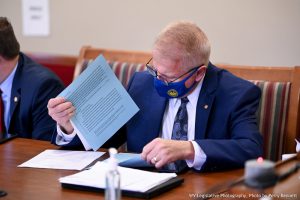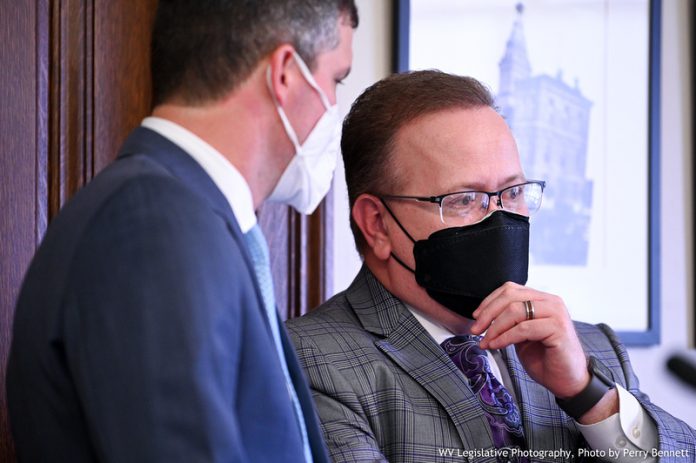The Judiciary Committee met this morning and afternoon, advancing House Bill 2017.
House Bill 2017 was the entire focus of the morning meeting. Counsel explained the 404-page criminal code rewrite. The bill adds two new articles of code: Article 17 – Classification of Offenses and Authorized Disposition of Offenders and Article 18 – Restitution and Fines. For sentencing, felonies are classified in six categories, misdemeanors are classified in three categories, and petty offenses are not classified. Several articles of the criminal code have been rewrote to incorporate the new class system into it.
The Felony Classifications are as follows:
- Class 1- Minimum: Life with Mercy, Maximum: Life without Mercy
- Class 2- Minimum: 15 years, Maximum: 60 years
- Class 3- Minimum: 5 years, Maximum: 30 years
- Class 4- Minimum: 3 years, Maximum: 15 years
- Class 5- Minimum: 2 years, Maximum: 10 years
- Class 6- Minimum: 1 years, Maximum: 5 years
Fines for felonies are fixed at not more than $500,000 unless other provided.
The Misdemeanor Classification are as follows:
- Class 1: 1 year maximum
- Class 2: 6 months maximum
- Class 3: 90 days maximum
Fines for misdemeanors are no more than $2,500 for a class 1, no more than $750 for a class 2, no more than $500 for a class 3, and no more than $300 for a petty offense.
Fines against enterprises, which are any entity other than an individual person, are as follows:
- Class 1 felony: $10M

- Class 2 felony: $5M
- Class 3, 4, 5, and 6 felony: $1M
- Class 1 misdemeanor: $100,000
- Class 2 misdemeanor: $50,000
- Class 3 misdemeanor: $10,000
- Petty offense: $5,000
The committee recessed again and returned at 6:40 pm. They advanced six bills in the evening meeting.
House Bill 2997 adds a defense to civil penalty impose for a result of delivery of fuel to a state other than the destination state printed on the shipping document for fuel. This will update our code and bring it in line with surrounding states to collect taxes more properly.
House Bill 3089 makes utility workers essential employees during a state of emergency.
House Bill 2918 makes the Family Drug Treatment Court Program permanent.
House Bill 3030 authorizes the Commissioner of the Division of Highways to allow an increase of gross weight limitation and dimensional restrictions on certain roads in Greenbrier and Pocahontas Counties.
House Bill 2884 provides protection for customers of municipality owned utilities.
House Bill 2730 allows a debtor in bankruptcy to use the federal law exemptions.
The Judiciary Committee will meet tomorrow at 9 am in 410M.

